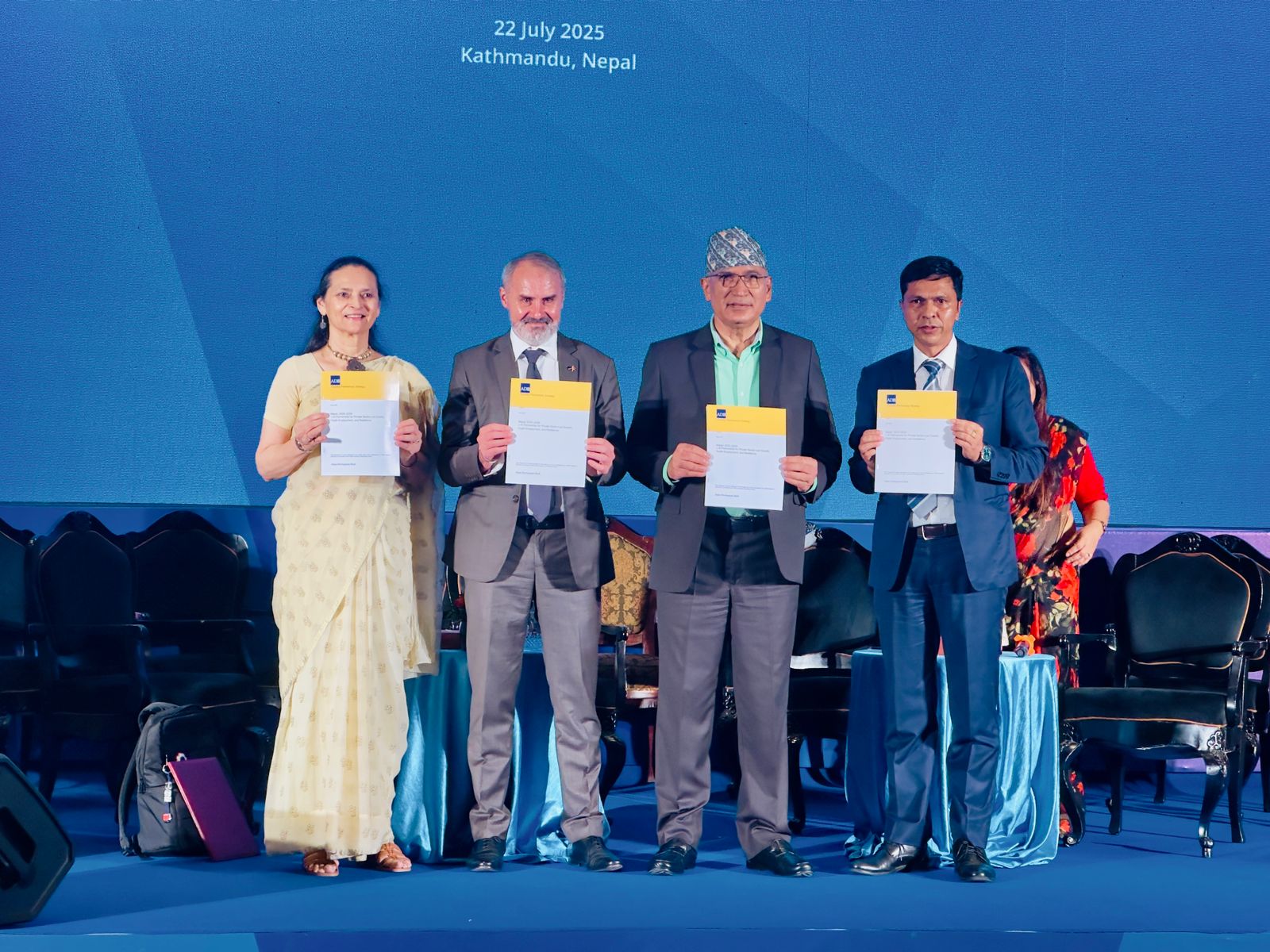Kathmandu, June 17– The Asian Development Bank (ADB) has officially launched its new Country Partnership Strategy (CPS) for Nepal, outlining its development priorities for the period 2025 to 2029.
This five-year strategy is focused on fostering private sector–led economic growth, creating quality employment opportunities, and enhancing climate resilience in Nepal.
The strategy was unveiled during a formal event attended by Deputy Prime Minister and Minister for Finance Bishnu Poudel, Finance Secretary Ghanshyam Upadhyay, ADB’s Country Director for Nepal Arnaud Cauchois, and Preeti Arora, Operations Manager for Maldives, Nepal, and Sri Lanka at the World Bank.
The launch marks a significant milestone as it is the first time ADB and the World Bank Group have jointly developed a Country Partnership Framework for Nepal, reflecting a deepened commitment to collaborative development planning.
Aligned with Nepal’s 16th Five-Year Plan and the government’s Green, Resilient, and Inclusive Development (GRID) agenda, the CPS outlines three strategic pillars: promoting private sector–led, employment-intensive, green economic transformation; strengthening inclusive and high-quality public service delivery; and improving environmental sustainability and climate resilience. T
he strategy also addresses cross-cutting priorities such as digital transformation, good governance, capacity development for federalism, and empowerment of women, marginalized, and vulnerable populations to ensure inclusive and equitable development outcomes.
Speaking at the event, Finance Minister Bishnu Poudel stated that the CPS represents a new chapter in the six-decade-long partnership between Nepal and ADB. He emphasized that the strategy will support inclusive growth, climate adaptation, and generate quality jobs, particularly for youth. “Aligned with Nepal’s 16th Plan, this strategy will contribute to inclusive economic growth and climate resilience. We are grateful for ADB’s unwavering support on our journey of economic transformation,” he said.
ADB Country Director Arnaud Cauchois highlighted that the CPS reflects ADB’s firm commitment to supporting Nepal’s development goals. He noted that the strategy provides a comprehensive roadmap for green, inclusive, and employment-centric economic growth.
“We commend the leadership of the Ministry of Finance and our close collaboration with the World Bank Group. ADB remains committed to working with all stakeholders to effectively implement this strategy through investment projects, policy-based lending, and sectoral development programs,” he added.
Under the new CPS, ADB expects to provide approximately US $2.3 billion in concessional financing to Nepal, including grants from the Asian Development Fund. The support will be channeled toward key areas such as infrastructure development, institutional reform, and capacity-building initiatives.
During the event, ADB Chief Economist Ian Khandison and Program Officer Shrijana Rajbhandari presented the CPS’s main priorities and key projects. They emphasized that the strategy is designed to help Nepal transition from a remittance-driven economy to a more sustainable, productive, and inclusive growth model—supporting the country’s graduation from Least Developed Country (LDC) status.


